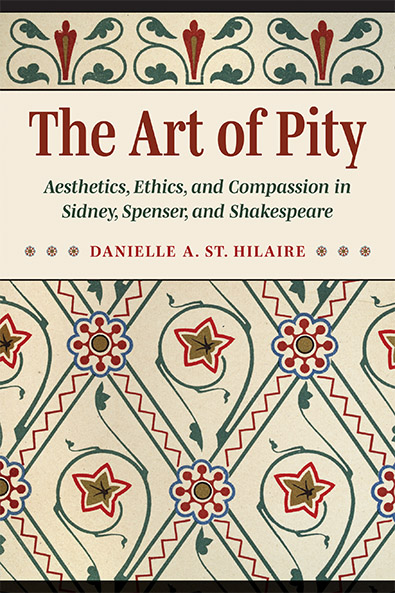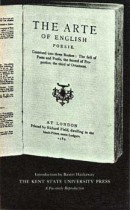The Art of Pity
Aesthetics, Ethics, and Compassion in Sidney, Spenser, and Shakespeare
Literature & Literary Criticism, Medieval & Renaissance Literary Studies, Recent ReleasesDanielle A. St. Hilaire
The late 16th and early 17th centuries in England were a time of substantial anxiety over the value of reading and writing literature. The Art of Pity argues that English early modern literature made a powerful case for the ability of literature to provide ethical instruction by engaging our emotions. Contemporary explanations of how literature could do so, however, were various and faltering. Writers like Sidney and Spenser insisted in their prose that poetry could, in Spenser’s words, “fashion a gentleman or noble person in vertuous and gentle discipline” because of its aesthetic power. Yet their poetry demonstrated skepticism of the notion that aesthetic delight provided a vehicle for ethical instruction. Meanwhile, Shakespeare explored varying models of how drama affects its audience, grappling with the question of whether our emotional responses construct or merely reveal our ethical dispositions. These writers’ works embody the tensions of their historical moment, suspended between classical and Medieval philosophy and Enlightenment thought.
In this thoughtfully researched and beautifully written study, Danielle St. Hilaire argues that we can find frameworks for understanding the intersection of emotion, ethics, and literature that unite modern discourses of aesthetic autonomy with seemingly incompatible ethical theories that have largely fallen out of contemporary discussions regarding the value of literature.
Danielle A. St. Hilaire is the chair and associate professor of the English Department at Duquesne University. She is the author of Satan’s Poetry: Fallenness and Poetic Tradition in Paradise Lost, as well as numerous articles in scholarly journals and chapters in multiauthor volumes.
“Working at the complex intersection of affect, aesthetics, and ethics, The Art of Pity is a remarkable contribution to our understanding of how early modern literature makes meaning. Learned and lucid, the book is a delight; St. Hilaire’s deft analysis of pity in Sidney, Spenser, and Shakespeare generates key insights into the emotional and ethical dimensions of aesthetic experience—with implications that extend beyond the Renaissance and help us freshly see the value of literature today.”
—Bradley J. Irish, associate professor of English at Arizona State University and author of The Rivalrous Renaissance: Envy and Jealousy in Early Modern English Literature
* * *
“St. Hilaire convincingly illuminates the consequence and legitimacy of emotions responsive to literature, delight and pity paramount among them, in shaping how we judge, think, and live, and the unparalleled nature of literary experience for awakening our ethical potential through affective and cognitive means. In this compelling account, the stakes are never higher than when we choose to enter a playhouse or immerse ourselves within the fictional universe of a poem. Seen aright, The Art of Pity shows imaginative literature is so much more than a flight of fancy.”
—Russell M. Hillier, professor of English at Providence College, Rhode Island, and author of Milton’s Messiah: The Son of God in the Works of John Milton





